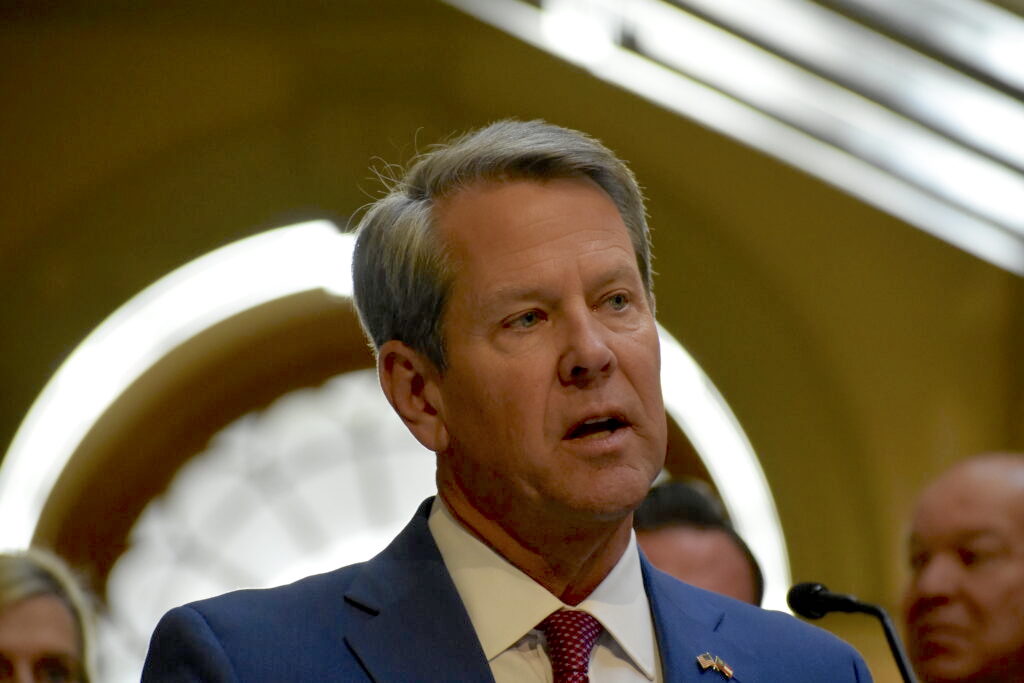
(GA Recorder) — Gov. Brian Kemp has signed a controversial bill into law banning doctors from providing surgical or hormone treatments to transgender people under 18 years old.
“Today, I signed SB 140 into law to ensure we protect the health and wellbeing of Georgia’s children,” Kemp wrote in a statement. “I appreciate the many hours of respectful debate and deliberation by members of the General Assembly that resulted in the final passage of this bill. As Georgians, parents and elected leaders, it is our highest responsibility to safeguard the bright, promising futures of our kids – and SB 140 takes an important step in fulfilling that mission.”
Kemp signed the bill Thursday after it was passed on Tuesday, eschewing the traditional post-session 40-day signing period and opting not to host a public signing ceremony. Doctors who violate the law could lose their licenses and, thanks to a House committee amendment, potentially be subject to civil or criminal action.
The bill is set to go into effect July 1, and transgender minors prescribed hormones before that date will be able to continue treatment. The bill will not limit puberty-blocking medications, a provision author Sen. Carden Summers, a Cordele Republican, said is intended to offer a cooling down period before young people make a decision they may later regret.
Lawmakers said they had been contacted by Georgians who transitioned at a young age and grew to regret it, but none spoke at any of the bill’s legislative hearings.
A large number of transgender youths, their parents, and other supporters did come to the Capitol to plead against passage of the bill.
One of them was Adam Phillips, 15. Phillips, who is transgender, returned from the Capitol, where he attempted to meet with lawmakers, to his home in Savannah, where he planned to keep up the fight by encouraging others to call and write Kemp’s office.
“His office had made it seem that they were really going to look into it and work with everyone else; we were talking about ‘just keep calling his office and trying to get them to hold off until the session ends,’” he said. “But it really surprised me that he signed it so early. I wasn’t expecting that.”
On Tuesday, a spokesman for the governor’s office said the bill would “undergo a thorough review process.”
According to a 2018 American Academy of Pediatrics policy statement, surgical intervention is typically reserved for adults but can be offered to adolescents “on a case-by-case basis with the adolescent and the family along with input from medical, mental health, and surgical providers.”
The APA notes that transgender children who receive care that acknowledges their gender identity tend to experience better academic and social outcomes.
In practice, doctors say surgeries on minors are extremely rare, and hormones are not prescribed without much consideration.
“I started testosterone about a week before I turned 14, which is obviously very young, and it’s very unusual, but that was because I came out at eight years old, and I was in therapy for five years before the conversation of HRT even was brought up,” Phillips said.
“It’s very rare to start this young as there’s a lot of really long extended processes to start hormones or any type of medicine regarding your transition,” he added.
Phillips said hormone replacement therapy has improved his life, and though he may be grandfathered in, he worries for younger kids who will not be able to receive the care he did.
“Before I was on HRT, I struggled to interact with my peers. I struggled to go outside and talk to people because I was just so scared and self-conscious, and it was really negatively impacting my health and my mental well-being,” he said. “Being on HRT, it’s really just improved my well-being in every aspect and has really allowed me to thrive in school and with my peers. By not allowing people younger than me these opportunities, you’re not giving them the chance to really experience life.”
Future
Litigation is expected. Democrats have argued that the bill could violate the 14th Amendment.
“We will use every legal means at our disposal to block this bill from hurting children and families. It’s disturbing how quickly the governor acts to sign bills that take away people’s rights,” said Andrea Young, Executive Director of the American Civil Liberties Union of Georgia.
The ACLU is tracking 430 pieces of anti-LGBTQ legislation across state legislatures, 116 of which relate to medical care.
Meanwhile, right-wing groups and individuals like Georgia Congresswoman Marjorie Taylor Greene are calling on the Legislature to go further.
In a tweet after the bill passed the House, Greene criticized the bill for not restricting puberty blockers and for its “vague language that could make it easily thrown out in the courts.”
Janae Stracke, Vice President of Field Operations for the right-wing lobbying firm Heritage Action, pledged to continue the fight to expand on the bill.
“While Heritage Action appreciates the steps taken to strengthen SB 140, we look forward to working with the Georgia General Assembly to go further in the future to protect minors suffering from gender confusion,” she said in a statement. “Toward this end, we thank the House and Senate for the effort to amend this legislation to avoid shutting the door to recourse for children suffering from the irreversible effects of medical experimentation. We will continue our work alongside grassroots Georgians to fight to protect children from dangerous cross-sex hormones and experimental surgeries.”







